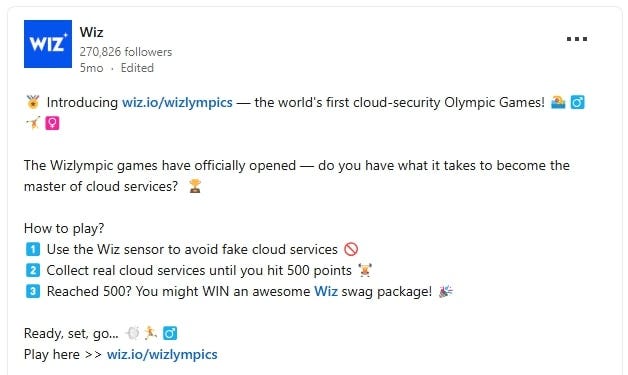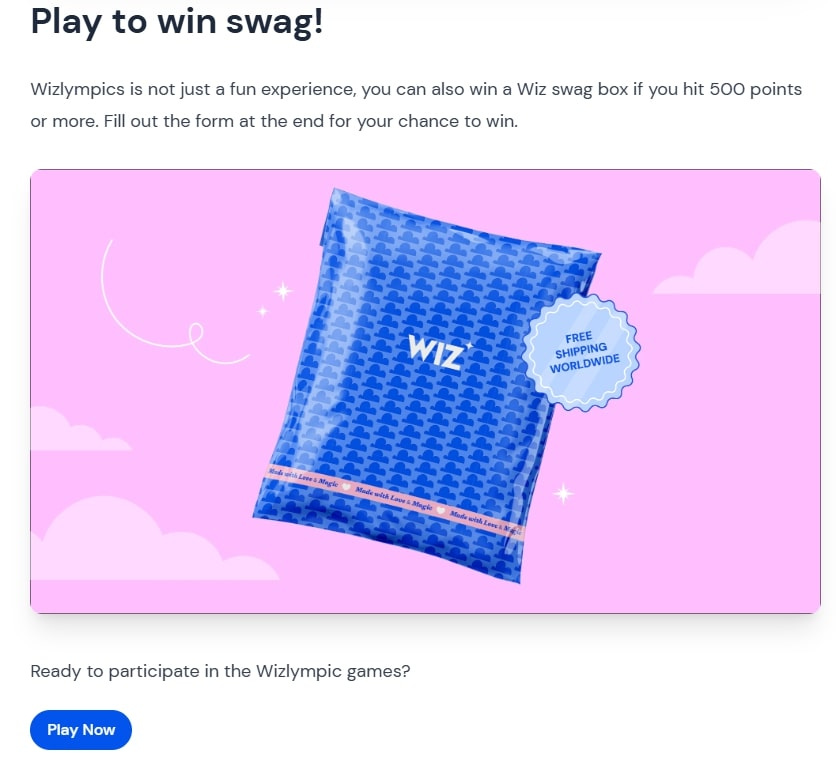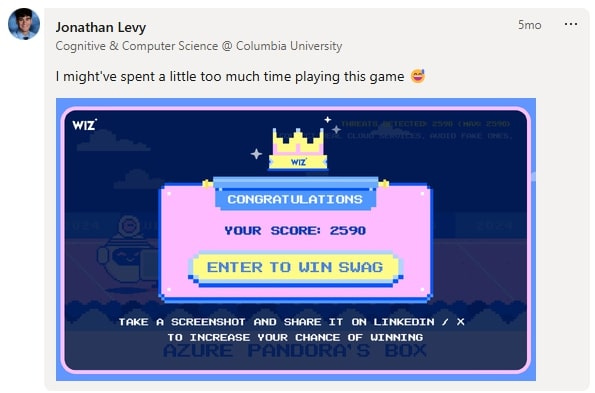The marketing move you didn’t see coming
How a simple mini-game became a genius marketing move
👋 Hey, I’m George Chasiotis. Welcome to GrowthWaves, your weekly dose of B2B growth insights—featuring powerful case studies, emerging trends, and unconventional strategies you won’t find anywhere else.
I am a big fan of unconventional marketing tactics.
SEO, content marketing, digital PR, and all the other channels and content types can be effective and have their purpose.
But I get excited when I see examples of out-of-the-box thinking, of marketing moves outside of the usual ‘rulebook’.
Today, I want to talk about one such move.
The tactic
Last year, right around the time of the Olympics, Wiz, the cloud security platform, did something unexpected.
They launched a mini-game.
The mini-game can be played even today. It’s simple – the Wiz mascot has to jump and collect real cloud services that are coming at it while avoiding fake ones at the same time.
I admit that, even though my knowledge of cloud services is patchy at best, I spent a good half an hour playing the game.
It’s fun, cute, and a great way to waste a bit of time you should be spending on something more productive.
Then I thought about why this is a great marketing tactic.
Why the tactic works
Releasing a mini-game on your website has multiple potential benefits:
High engagement rates: Games are addictively interactive. While playing, even if it’s just a few rounds, users will spend more time on your website than they usually would.
Viral potential: Fun mini-games are meant to be shared with others. This is especially true if you introduce a basic leaderboard or reward system. In the example of Wiz, users could play for a chance to win Wiz merch.
Strengthens brand affinity: Who doesn’t love a quirky and innovative brand? Releasing a mini-game can increase customer loyalty all on its own, but especially if the playing experience is enjoyable.
How to do it yourself
No need to reinvent the wheel. Take an already-existing game mechanic (such as Wordle, Housle, Murdle, CineQuote, Chrome’s Dino Game, or similar) and tailor it to your industry and your target audience.
Make sure it’s immediately obvious which company created the game. In other words, include your brand’s colors, typography, and logos.
Keep users coming back for more. Here are a few ideas on how to make the game replayable:
Daily challenges (like Wordle).
Incentives such as discounts, free trials, or exclusive content for reaching milestones.
Leaderboards that reset after a specific time period (day or week).
Set the foundation for virality. Make it easy for users to share your game with social media share buttons. Encourage them to share their scores or challenge others to beat them.
Consider piggybacking off of ongoing trends or events. Such as Wiz launching their Wizlympics game just in time for the Olympics.Promote the game! Don’t be shy about sharing it on socials, both on company profiles and through employee advocacy. You can even create a blog post update announcing the game release.
Final thoughts
Wiz is not the first brand to jump on the mini-game bandwagon.
Toggl did it way back in 2016 with their Startup Simulator (which I’m not sure still works). Vicarius also had their Space Invaders-type game called CVE Invaders.
While I have yet to find information on the exact results of these campaigns, I am sure that they brought in big engagement for the brands.
Thank you so much for reading this week’s note.
See you next week!




